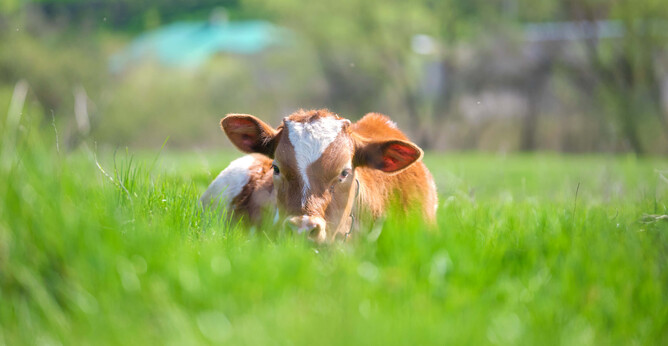What to look for and how to prevent B1 deficiency in your herd.
Vitamin B1, or thiamine, deficiency causes a disease known as polioencephalomalacia (‘polio’). In New Zealand, this is most commonly seen in youngstock over the summer months, when calves are around 6-12 months old.
Cattle rely on bacteria in their rumen to produce vitamin B1 daily. If factors upset these bacteria, it can lead to either less thiamine being produced or an increase in specific thiaminase enzymes that destroy the thiamine already present in the rumen.
Lack of vitamin B1 leads to inflammation in the brain and causes brain cells to die. Due to this reliance on rumen health and production, the most common time we see B1 deficiency in New Zealand is after moving cattle from rough pasture to a lush, new paddock.
How does B1 deficiency present?
Typically we see B1 deficiency as:
Early signs: not eating;
Nervous signs: staggering, apparent blindness, muscle tremors, depression, head pressing;
Can progress to recumbency and death if not treated.
Often, only one to a few calves are affected at any given time.
Signs can also progress quickly, over 6-12 hours, so it is important that these cases are noticed and treated promptly!
These clinical signs are not specific to thiamine deficiency and can also be caused by lead or salt poisoning, listeria and other infectious diseases. High sulphur diets (e.g. some brassicas or water sources) can also inhibit an animal's ability to utilise vitamin B1, but often a lot needs to be ingested before signs are apparent.
Treatment
If you notice any of these clinical signs in your youngstock, please give the clinic or your KeyVet a call to discuss possible diagnoses and a treatment plan.
Treatment is best given ASAP to avoid irreversible damage to the brain and usually takes the form of:
B1 injection, initially into the vein, then subsequent injections into the muscle for at least 3 days;
Often an anti-inflammatory is given too.
Prevention
Some key ways to avoid B1 deficiency in your herd include:
Avoid sudden feed changes, e.g. going from stalky summer pasture to fast, fermentable lush pasture. Try and transition them slowly where possible;
Monitor cattle, especially youngstock, after moving them onto a fresh paddock.

